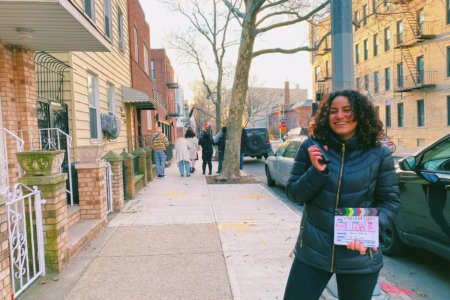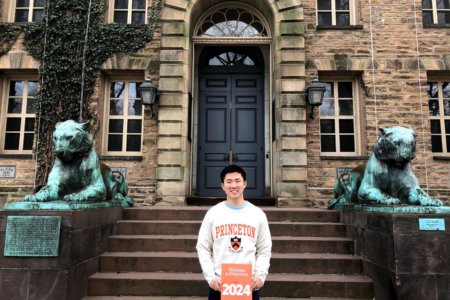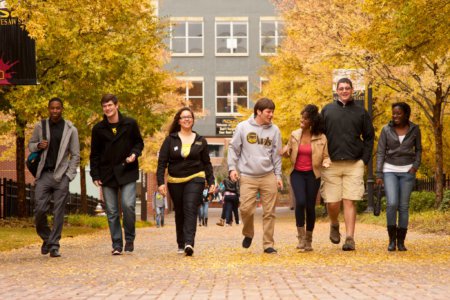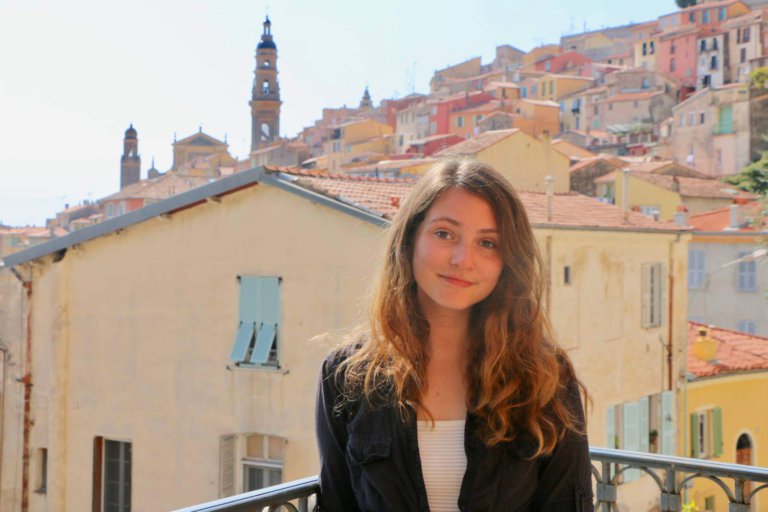
Safia Southey hails from New York and is currently busy studying for a Dual BA Programme with Sciences Po and Columbia University — an Ivy League college. The 22-year-old is studying politics and government at the former — including learning Arabic and French — and human rights at the latter. “When I looked at undergraduate programmes, I really yearned for something international, rather than a traditional American institution that would allow me to take a semester or two abroad,” she tells Study International via email.
Her plan is to assist in the Middle East and North Africa (MENA) region, specifically refugees and in conflict areas. Below we speak to her about her studies abroad at Sciences Po, Columbia, and what other plans she has for the future:
What made you choose to study under the Dual BA Programme with Sciences Po?
I was raised by international travellers and development practitioners. I have been lucky to grow up in Cairo, Paris, Amman and New York and through travelling constantly, it spawned my early interest in policy and humanitarian issues.
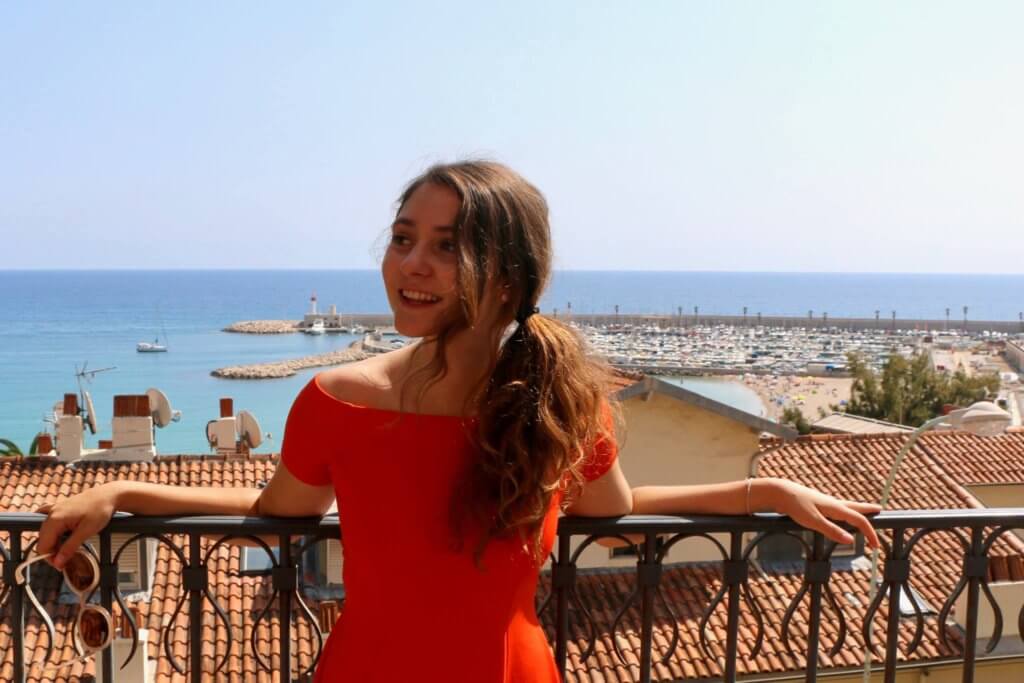
Southey has been lucky enough to have lived in several different places, so she knows what being a global citizen is all about. Source: Safia Southey
When I looked at undergraduate programmes, I really yearned for something international, rather than a traditional American institution that would allow me to take a semester or two abroad. The Dual BA Programme would allow me to spend two years in the South of France learning about the Middle East which is my area of interest.
I study the Middle East in France under professors from the region across from the largest refugee camp in Europe, and human rights in New York in interaction with incredible professors in the field at Columbia’s Human Rights Institute.
If you could list your top three favourite things about Sciences Po, what would they be?
One, the diverse classrooms with a focus on discussion which allowed me to learn about issues from not only the professors, but the students as well who come from all around the globe. Two, the ability to travel easily which provided insights into different cultures and communities, and supplemented my formal education with real world experience. I was able to visit every country in Europe during my studies at Sciences Po.
Thirdly and lastly, the community and small class sizes at Sciences Po ensure that you become incredibly close with everyone on campus. The students at Sciences Po and the Dual BA programme are genuinely the most interesting and brilliant humans I’ve had the pleasure of getting to know. They’ll hopefully be my friends forever.
Where would you take us if we were in your hometown?
In New York, there are a million things to find yourself busy with. I would take you to visit the High Line, Chelsea Market, and the Whitney Museum. I would also take you to visit Central Park — a must-see, and all the museums surrounding it. I also have a deep-rooted love for the neighbourhood I grew up in — the Spanish Harlem — filled with amazing restaurants and culture, that feels like an entirely new world.
Do you think it would have made a difference if you studied at a local institution?
I believe that studying international and human rights in the US is often focused on formal institutions — like the United Nations, with no regards of other aspects of rights and conflict. Also, American schools often focus on US foreign policy with other countries, rather than true international relations outside of it. Having said that, I do think it would have been more difficult to study political science in the Middle East at a local institution in the US. Getting this dual perspective was really wonderful and eye-opening.
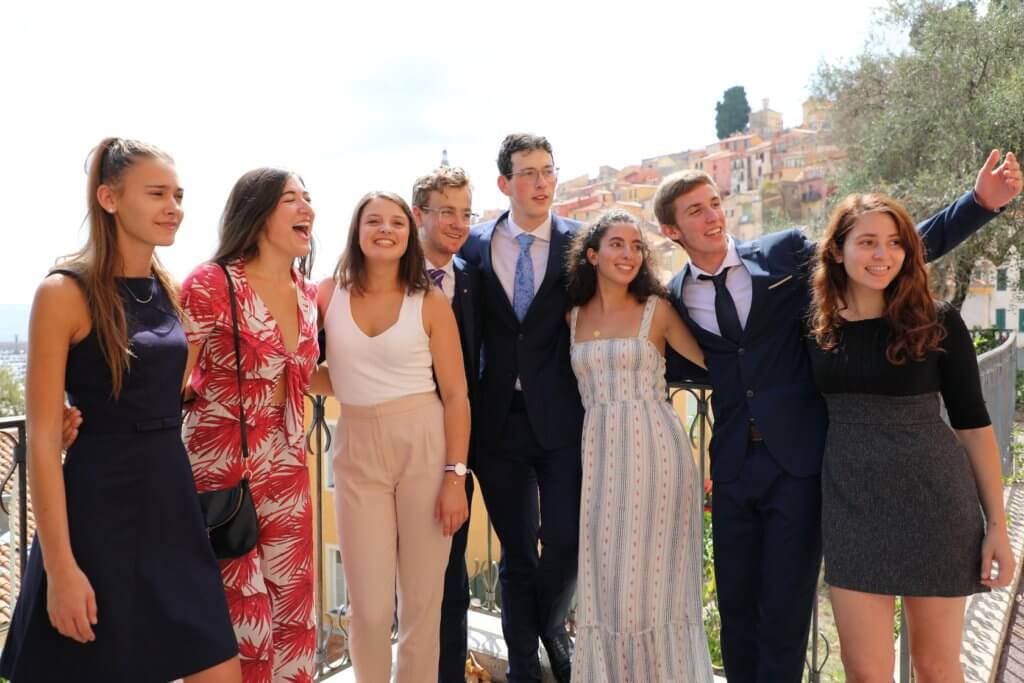
Due to the small student body size and campus, Safia Southey feels like she has become incredibly close with everyone. Source: Safia Southey
What has been your most memorable class so far?
My most memorable and favourite class has been “Muslims in Diaspora” taught by Dr. Derek Mancini-Lander at Columbia. I absolutely loved the sociological perspective it provided where Muslims face diaspora internationally, both historically and contemporaneously.
At Sciences Po, my “Public International Law” class was my favourite during my studies there, as it was impactful because it was the course that first got me interested in the beauties of international law.
Do you have any fond memories with teachers at Sciences Po and Columbia that stood out for you?
The professors at Sciences Po and Columbia are all brilliant, and have helped me grow so much as both a student and a thinker. The teachers at Columbia have been particularly useful in my professional life, writing my letters of recommendation, offering guidance for graduate school and internships, and providing wonderful conversations during office hours.
Alternatively, the professors at Sciences Po were also wonderful due to their personal experience in the topics we learnt, and inspiring me to further pursue what I am truly passionate about.
What are the practical learning elements in your courses? Do you get to apply the theories you learned in uni to the real world?
Sciences Po ensures that you employ practical learning through its Civic Engagement requirement — as a student, you have to volunteer or intern with an organisation in the summer after your first year and during your second year in France. You work with people to apply what you learn in the classroom to actually helping people. I worked in a refugee camp in Jordan on the border of Syria for my initial Civil Engagement project.
Similarly, Columbia offers many opportunities for internships, jobs, and work-study positions, both remotely and in person. Through this, you can get real experience and assist people outside of the school environment. For instance, through the Columbia Global Centres, I worked virtually this summer or the UNRCO Jordan conducting human rights research.
What are your academic goals in these courses?
Through my education I hoped simply to keep learning about international relations and human rights legislation. Honestly, I think the biggest skill that my courses have offered me have been to write, research, and clearly articulate my thoughts, both on paper and to other people.
This programme has perfectly equipped me not only for law school, but for careers in policy analysis and creation. In addition, I was able to study French and Arabic at Sciences Po, which would help me work in the region. I am so grateful for this programme and all I have learnt from it.
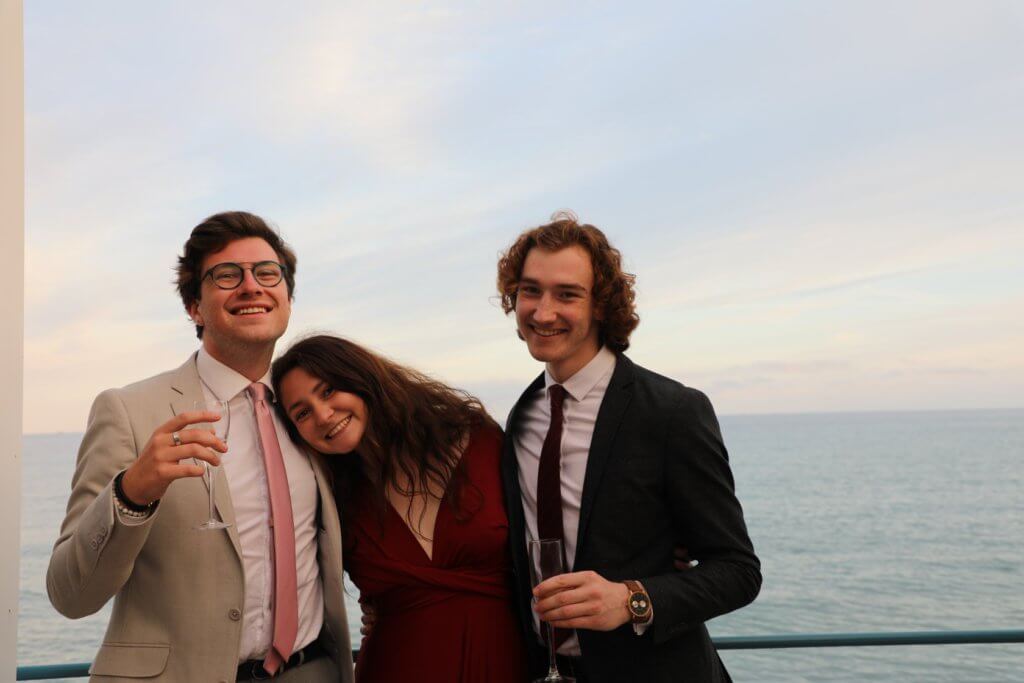
Making friendships for a lifetime, and the diverse student body are some of the reasons Southey enjoys her educational experience abroad. Source: Safia Southey
Do you plan to progress into further study? What do you want to do with your degree after graduating?
I graduate this spring, and was recently admitted to Columbia Law School under the LEAD Fellowship. I have plans to continue my work in human rights in the Middle East through legal efforts, and I hope to eventually work for organisations such as UNHCR, the Public International Law and Policy Group, and the International Law Commission to further address gaps in human rights legislation with a focus on the MENA region.
What advice do you have for international students looking to enrol under this Dual BA Programme?
I love this programme with all my heart. I highly encourage them to apply. This programme is made for those who are adventurous, curious, and deeply passionate about what they care about. I would not hesitate for a second if I had a chance to do it all over again. I currently run a tutoring company for high school students looking to apply to undergraduate programmes, as well as others applying to law school, so if you have any questions about this programme or the admissions process, please do not hesitate to reach out here!








